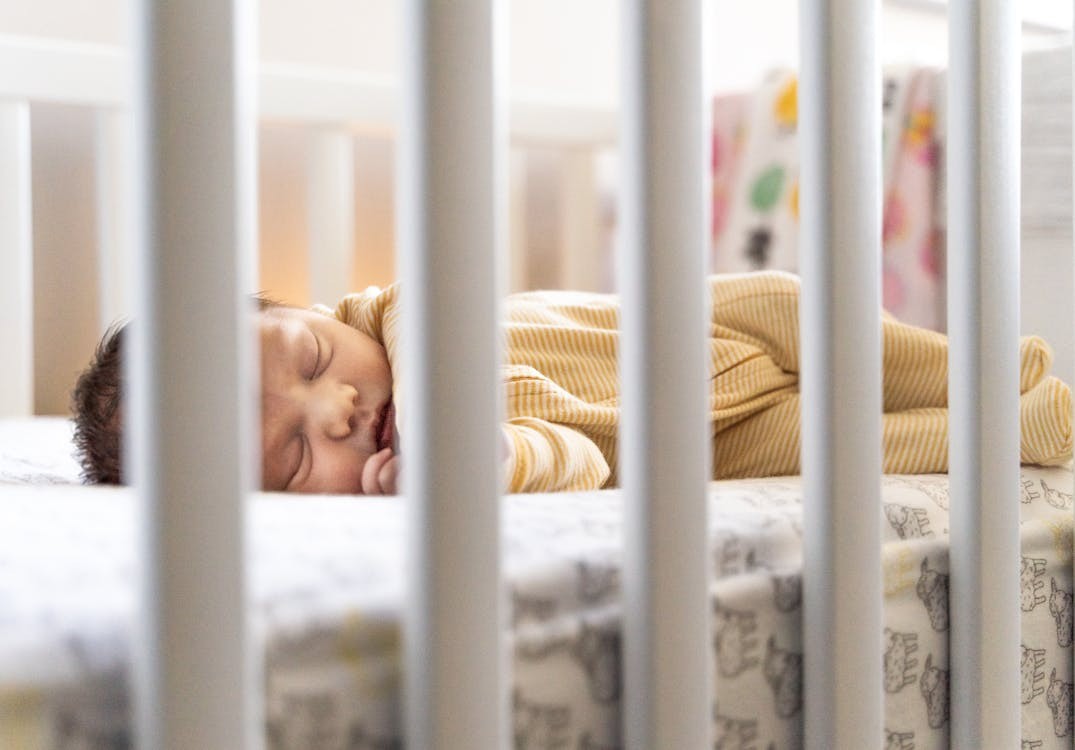How to Teach Babies to Sleep on Their Own
Jun 06, 2025
Babies spend most of their first year sleeping, but not in the way many parents hope. Instead of long, uninterrupted stretches, their sleep tends to come in short, unpredictable bursts during the first few months.
Given the sleepless nights and constant wake-ups in those early months, parents may wonder when babies start learning to naturally sleep on their own.
While every baby is different, most start sleeping through the night by the time they reach three months old. Until then, night wakings are simply part of their early sleep development.
The good news? You don’t have to wait and hope for better nights. Sleep training offers a gentle way to teach babies to self-soothe and fall back asleep independently. With the right approach, independent sleep for your baby becomes possible, bringing more restful nights not just for your baby but also for you.
What is Sleep Training?
Will babies learn to sleep on their own, or is it something they need to be taught?
While some little ones eventually figure it out on their own, sleep training can gently support the process.
Sleep training is the process of helping your baby learn how to fall asleep by themselves. Rather than relying on feeding, rocking, or being held to drift off, sleep training gently encourages babies to develop self-soothing habits that promote more independent sleep.
Over time, sleep-trained babies can rest for longer stretches, often between 9 to 12 hours at night. This deeper, more consistent sleep leaves babies feeling more settled during the day and gives parents a much-needed chance to recharge.
This kind of rest can make everyday life feel lighter and more manageable for moms still recovering from pregnancy and families adjusting to new routines.
When to Start Sleep Training
If you're eager to help your baby sleep more independently, you might be asking: when is the ideal time to start this practice?
Most babies may be ready for sleep training at around 4 months old. At this stage, their sleep starts to follow a more predictable rhythm, and they begin to stay asleep throughout the night. This is because their internal body clock (also called circadian rhythm) starts to develop, helping them recognize the difference between day and night.
Here are a few signs that suggest your baby might be ready for sleep training:
- They’ve slept through the night before: If your baby has managed a full night of sleep once, it’s a good sign they’re capable of doing it again with the right support.
- Night feeds are becoming less frequent: Your baby is starting to wake less often to eat and may not always seem hungry when they do.
- You’ve noticed early self-soothing habits: They might suck their fingers, turn their head, or lie calmly when drowsy. These are small signs that they’re learning to settle on their own.
- Comforting takes longer or feels less effective: Approaches that used to work quickly, like rocking or nursing, now take more time or lead to more fussiness.
Recognizing these signs can help you start sleep training at a time that feels natural and supportive. That said, sleep training isn’t something every family needs to do. Some parents prefer to follow their baby’s natural rhythm or take a more gradual approach, and that’s completely valid.
Tips for Sleep Training Your Baby
Every baby’s sleep journey is different, but these few simple tips can help ease the transition to independent sleep:
1. Put Your Baby Down When Drowsy, Not When They’re Fully Asleep
Instead of waiting until your baby is fast asleep, try placing them in their crib when they get drowsy. This gives them the chance to drift off on their own, which helps them get used to falling asleep independently.
2. Create a Sense of Separation
Your baby doesn’t need a separate room to start sleep training, but a little distance can help. Try placing their crib a few feet away or using a visual barrier. This subtle separation encourages them to fall asleep without relying on your constant presence, supporting their ability to self-settle.
3. Stick to a Consistent Bedtime Routine
A predictable bedtime helps your baby understand when it’s time to wind down. Putting them to sleep at the same time each night builds a steady rhythm, making it easier for their body to adjust and fall asleep more smoothly over time.
4. Stay Patient Through the Tough Nights
There will be nights when sleep training feels extra challenging, whether your baby is unwell or just having difficulty adjusting. Take a deep breath, stay consistent, and remind yourself that these setbacks are part of the process, not the end of it.
5. Consider the “Cry It Out Method”
This method involves placing your baby in their crib after a calming bedtime routine, then leaving the room to allow them to fall asleep alone, even if that includes some crying. Parents typically do not intervene during this time, giving the baby a chance to learn self-soothing or tire themselves out from crying.
While it can work for some parents, it’s okay if it doesn’t feel right for you. Every baby and parent is different, and comfort matters, too.
6. Try the “Ferber Method” for a Gradual Approach
If the Cry It Out method feels too harsh, the Ferber Method offers a gentler step-by-step alternative. It involves putting your baby to bed after a soothing routine, then checking in at timed intervals if they cry, offering brief comfort before stepping out again. Over time, these check-ins become more spaced out, helping your baby learn to self-soothe at their own pace while still feeling supported.
7. Find a Method That Works for Your Family
Every baby is different, and so is every household. Whether you prefer a gradual approach or something more structured, the ideal sleep training method is the one that suits your baby’s needs and feels right for you as a parent. What matters most is that it’s something you can follow through confidently and consistently.
8. Adjust As Your Baby Grows
As your baby grows and their daily routines shift, their sleep needs will change, too. Be open to revisiting sleep training approaches to keep up with their development.
Let’s Make Better Sleep a Reality—for Your Baby and You

As we’ve explored, babies do eventually learn to sleep on their own, but a little guidance can make the journey easier for everyone. However, there’s no one-size-fits-all method when it comes to training your baby to sleep on their own. What truly makes a difference is consistency, patience, and finding an approach that fits your baby’s unique temperament and your family’s lifestyle.
If you’re unsure where or how to begin, I’m here to assist. I’m Sharanya V, a baby sleep consultant in Singapore, and I work with parents to build healthy, lasting sleep habits for their baby or child through gentle, evidence-based approaches. Each plan is personalized to match your baby’s development and your specific family dynamics and home environment, so you never have to figure it out alone.
However, beyond pediatric sleep solutions, the 12-week Parenting Revival Coaching Program is also structured to nurture your overall well-being as new parents. This includes helping you establish healthy parenting strategies, streamline household routines, and strengthen your marriage or relationship as you and your partner adjust to life with a baby.
Because when parents are well-rested, supported, and emotionally connected, everyone sleeps better.
Feel free to contact me for any questions!

